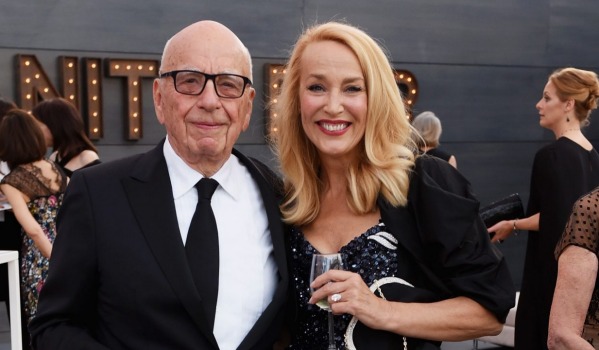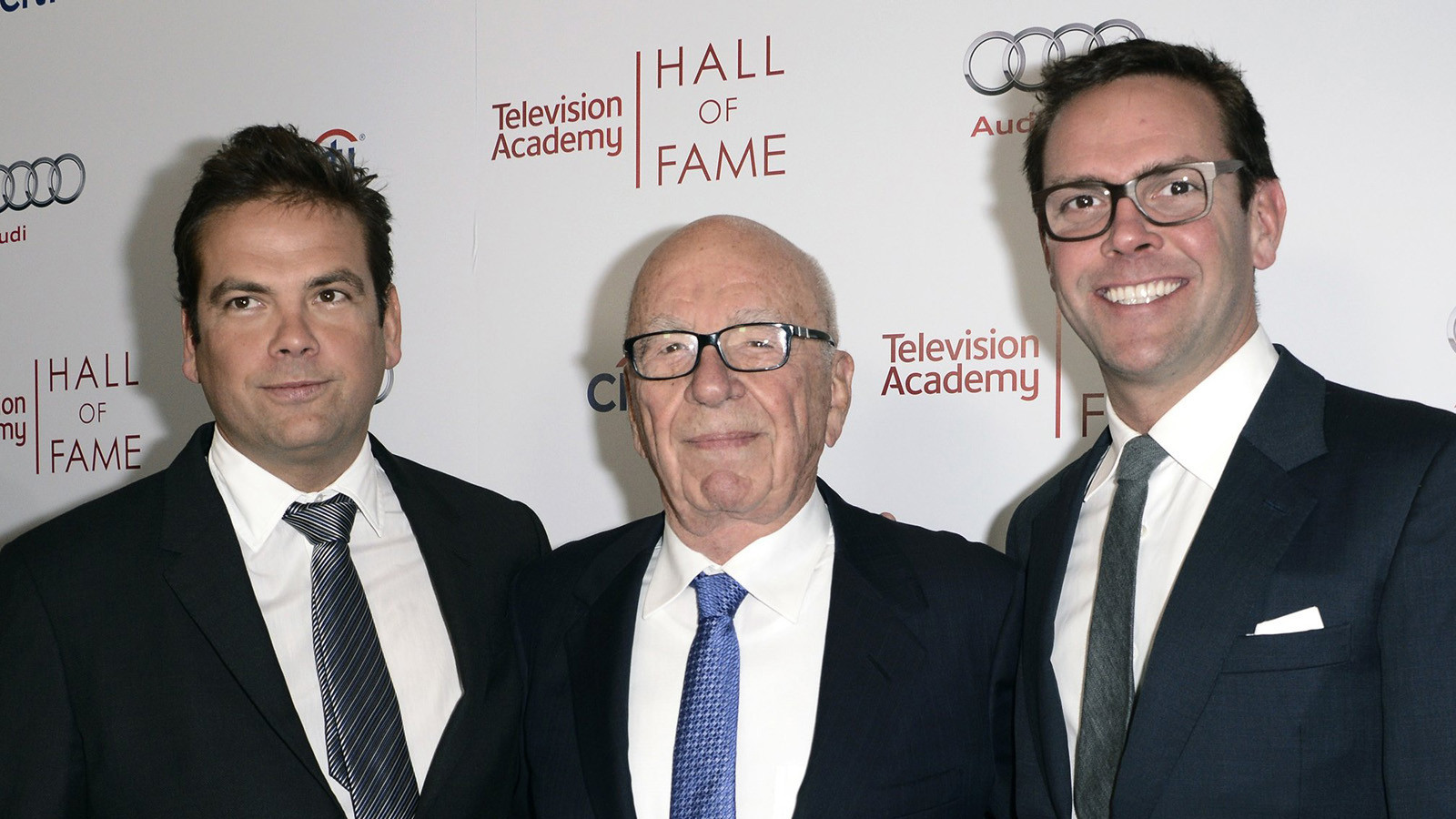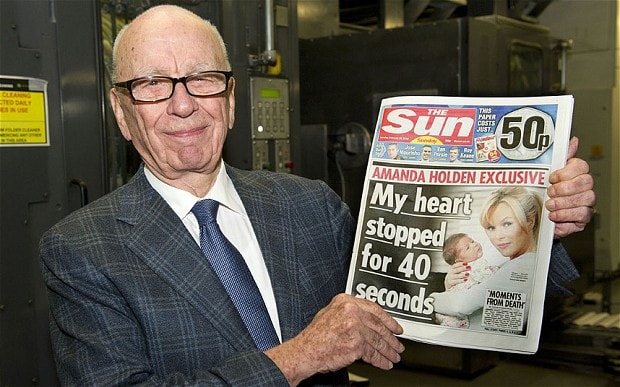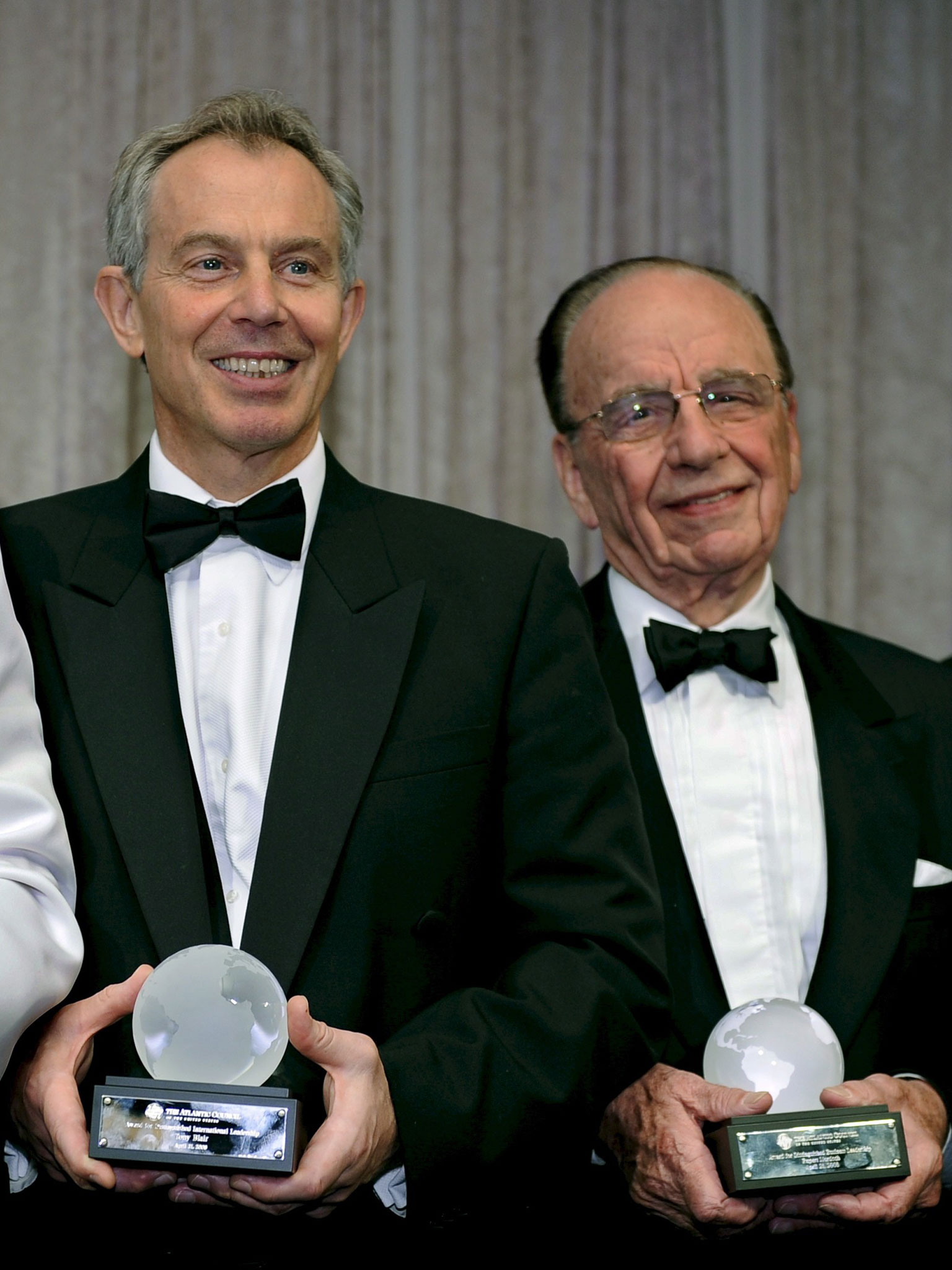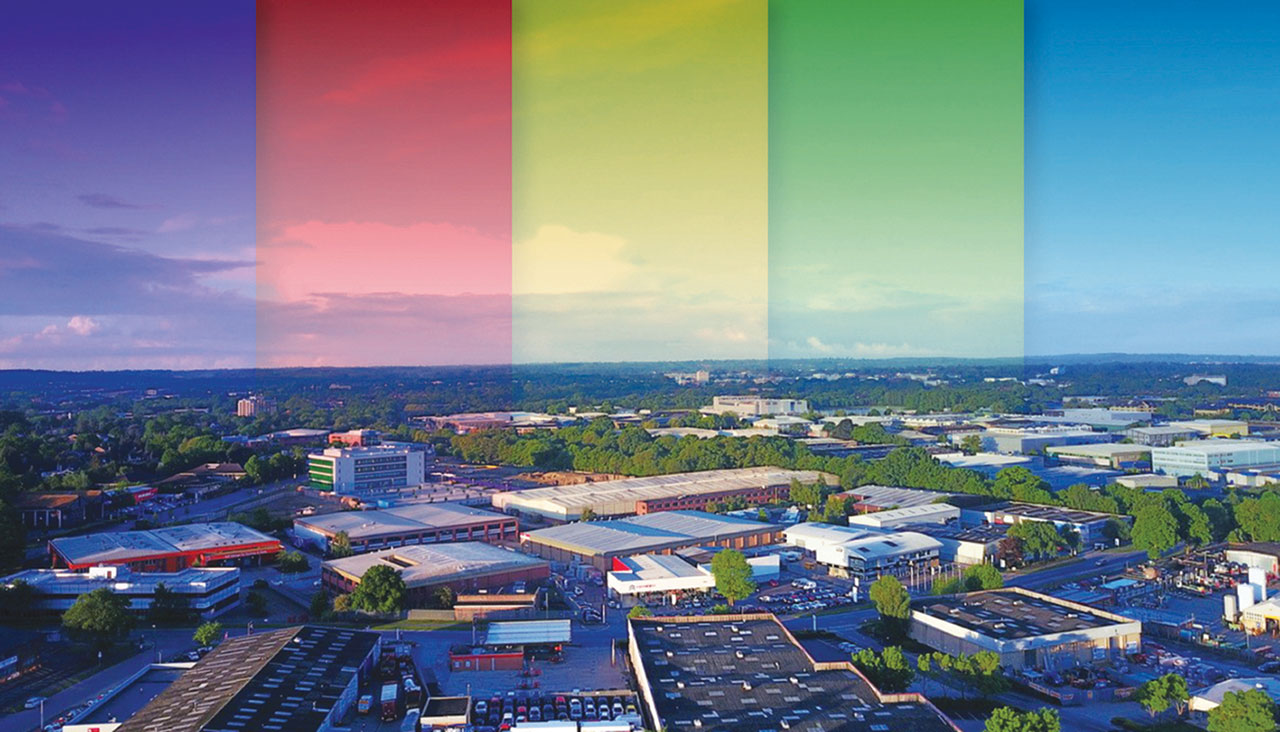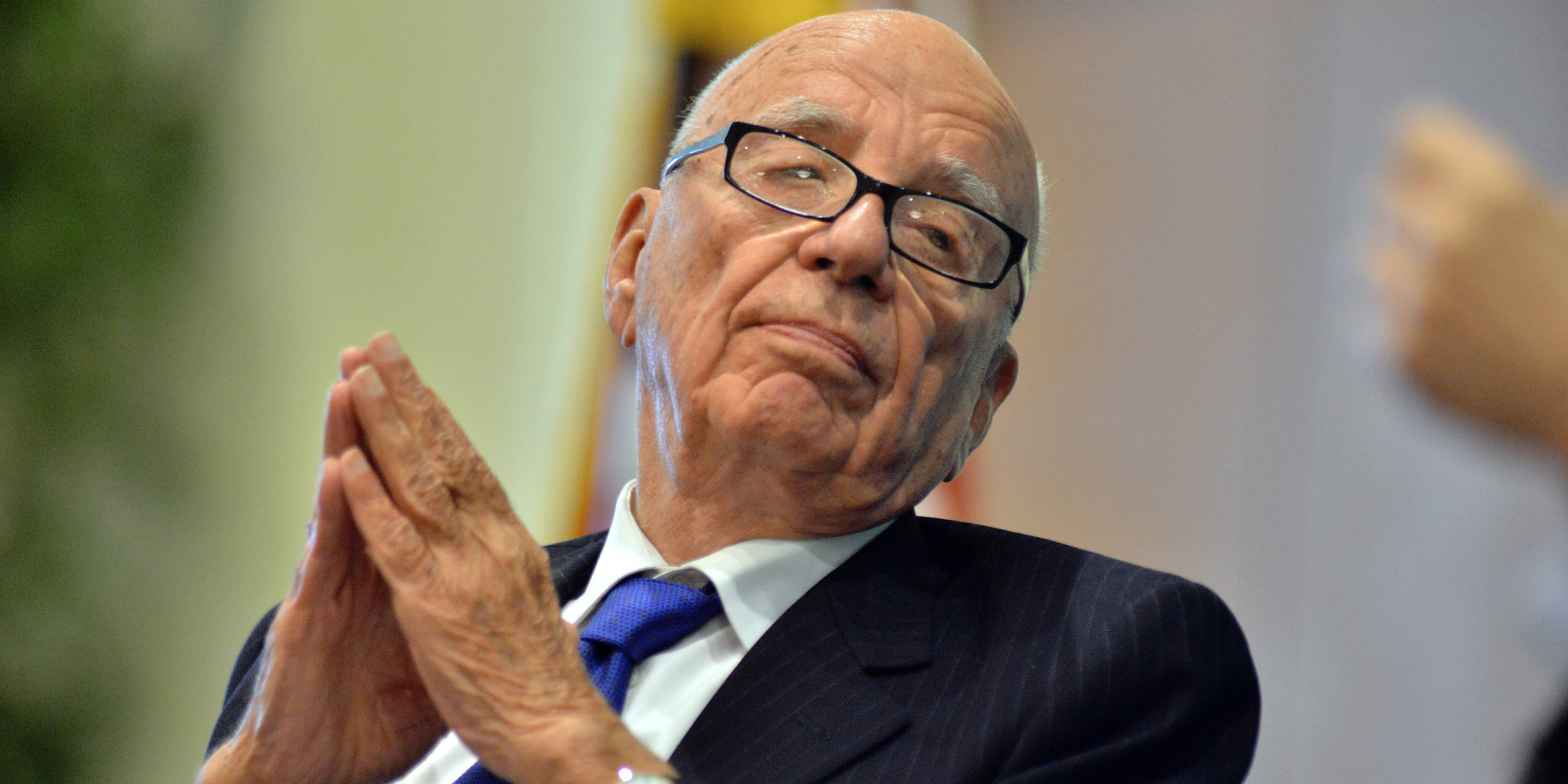
Few businesspeople provoke a reaction like Rupert Murdoch. He is the brash colossus who has dominated newspapers, TV and films in the UK, USA, Australia and beyond. Prime Ministers and Presidents have quaked at his disapproval and prostrated themselves to earn his favour. He has revolutionised the way we watch TV and destroyed seemingly unbreakable unions. Yet now, he is seemingly determined to see a huge chunk of his sprawling empire be consumed by an even bigger beast, Disney.
Has age finally caught up with the ‘Dirty Digger’? Is he now ready to slide off into the distance to enjoy his final years with his new wife - the still-glamorous Jerry Hall? Or is there life yet in the old campaigner? Is there a master plan in place to secure a family succession plan - and his own legacy? Who would bet against him?
The Big Sell Off
It would be possible to fill this feature with a list of the companies Murdoch owns or has significant control over. Effectively (and simplistically) Murdoch has two main business conglomerates: 21st Century Fox which owns his film, TV and broadcasting ventures, and NewsCorp, his publishing empire.
The big headlines have concerned 21st Century Fox, which is being lined up for acquisition by Disney. In December, Disney announced: “The Walt Disney Company is to acquire 21st Century Fox Inc after spinoff of certain businesses for $52.4billion in stock. The purchase is to include 21st Century Fox’s film and television studios, cable entertainment networks and international TV businesses, including Fox’s 39% ownership of Sky across Europe.”
Disney reveals the scale of the Fox enterprises: “21st Century Fox is one of the world’s leading portfolios of cable, broadcast, film, pay TV and satellite assets spanning six continents across the globe. Reaching more than 1.8 billion subscribers in approximately 50 local languages every day.”
One thing conspicuous by its absence is the other 61% of Sky, but Disney states: “Prior to the close of the transaction, it is anticipated that 21st Century Fox will seek to complete its planned acquisition of the 61% of Sky it doesn’t already own. 21st Century Fox remains fully committed to completing the current Sky offer and anticipates that, subject to the necessary regulatory consents, the transaction will close by June 30, 2018.”
The terms reported in a released statement will see Disney issue approximately 515 million new shares to 21st Century Fox shareholders, representing approximately a 25% stake in Disney on a pro forma basis. It also claims that the acquisition is expected to yield at least $2 billion in cost savings from efficiencies realised through the combination of businesses.
It is anticipated that the Murdoch family will own 5% of Disney as a result of the sale.
Pie in the Sky
In a bold declaration of intent from Disney, there is a nagging element of uncertainty. In its own words: “21st Century Fox will seek to complete its planned acquisition of the 61% of Sky…”
Whether Fox seeks it or not, the take-over of Sky may well be disallowed by the UK government. On January 23rd, the Competition and Markets Authority (CMA) provisionally found the deal to be not in the public interest, raising concerns over media plurality. In other words the CMA was concerned that Murdoch would have too much influence over public opinion and the political agenda, with his ownership of Fox, The Times and The Sun.
The report was not a big surprise, and Murdoch is well aware that many in government are less than keen to see him assert more influence. He has mooted the idea of closing down Sky News to reduce his information portfolio.
It is a dilemma for Murdoch as the Disney-Fox deal takes into account the success of the Fox-Sky deal, yet the likelihood of being allowed to take the other 61% of Sky increases once the Disney-Fox completes, as the buyer will no longer be owned by Murdoch.
However, the CMA’s ruling is only provisional, and a three-week public consultation has to take place before a final recommendation is sent to the Culture Secretary Matt Hancock by May 1st. Fox shareholders didn’t seem unduly concerned and the share price barely flickered. In other words, they are confident it is a done deal.
The $52.4billion question
Whether Fox takes control of Sky is yet to be decided, but it is still likely that Disney will acquire 21st Century Fox. Which begs the question - why? Why would you hand over a controlling interest in a company which creates blockbuster films and mines millions of lucrative pay-TV contracts, in exchange for a measly and ineffectual 5%?
Only Rupert Murdoch knows the answer to this question, but there are several factors which come into play…
The Disruptor Disrupted
Murdoch is no fool and it may well be that it’s time to get out of the entertainment business.
Matthew Lynn of The Spectator writes:
“Sky, along with the rest of the traditional media assets Fox owns in the US, is a fast diminishing asset. Plenty of industries are being disrupted by the internet, and plenty more will be in the decade ahead. But none is being turned upside down faster than pay television…
“In the last three years, Netflix and Amazon have muscled into its territory with spectacular success. Why pay £20 to £30 a month for Sky when Netflix offers far more exciting programs for less than a tenner, while Amazon gives them away with a Prime subscription?
“In sport, the competition is likely to get even fiercer. There is already speculation Amazon or Facebook will join the next round of bidding for Premier League football. Why wouldn’t they? It is precisely the kind of global, must-have product that locks customers into their systems. It is only a matter of time before one of the web giants offers the right price. And until then, their mere presence will drive the price of sports rights even higher.
“Sky’s fundamental problem is this. People are happier than ever to pay for TV. They [just] won’t be happy to pay Sky’s prices.”
If the Sky model looks outmoded, then it should be easy to adapt and evolve, but The Economist argues that Fox was struggling to compete in terms of investment:
“To have any hope of competing, scale is vital. Companies such as Facebook, Amazon, Netflix and Google (with YouTube) are investing heavily to seize consumers’ attention and money. Disney, which has a market capitalisation of $155bn, has lots of clout because of its premium film franchises: Star Wars, Marvel and its animated blockbusters. Last year it had all of the top five films at the global box office. Fox does not measure up: its best entertainment network, FX, is losing viewers, it owns only a few stellar franchises, like X-Men, and its film studio ranks fourth with 12.6% of the American box office this year.”
Added to this is the fact that Murdoch may have been feeling a bit exposed at Fox as Tim Adams at The Observer comments: “The sale acknowledges that the film business is being rapidly transformed by Netflix and Amazon, in ways he does not fully understand. More urgently, perhaps, the seen-it-all boardroom schemer was aware that his position at Fox was suddenly not as secure as it had been. Alwaleed bin Talal, the Saudi royal billionaire and major investor in the company, has long acted as his guarantor. In November, in the shake-up of the House of Saud, Alwaleed was among those arrested by Crown Prince Mohammed bin Salman.”
The sale would allow Murdoch to focus on making money from his two passions: sport and news. The Economist asserts: “If a sale goes ahead, Mr Murdoch would be left with a rump business worth around $45bn, and one not so easily disrupted by streaming services. Live news and sports account for more than half of Fox’s advertising revenue. Fox News is the largest cash-generator in the company, with an estimated $2.2bn in earnings before interest, taxes, depreciation and amortisation in the current fiscal year. Analysts question the value of the Fox broadcast network without its studio to make shows, but the plan is probably to become even more sports-focused, which makes sense.”
The Succession
Tim Adams quotes The New York Times who called the sale of Fox a “King Lear” moment. It is, says Tim, “An acceptance of mortality and legacy. Rather than an acknowledgement of waning influence, however, it looks more like a deliberate last-act concentration of it. Murdoch has never been much interested in the film business; he saw no way to get hands-on involved, in the way that he had always done with his news operation.”
The theme of legacy has been picked up by many commentators, as well as the issue of succession. Over the years there has been much speculation about which junior Murdoch would inherit the empire, but with such a prize at stake there was the risk of sibling strife, as seen with the bitter wrangling over the business empire of fellow American media magnate Sumner Redstone. The break-up of the business could prevent such a scenario.
It is widely predicted that after the sale goes through, youngest son (and assumed heir) James will leave Fox, possible taking up a senior role at Disney.
Back in 2005, to universal surprise, Lachlan Murdoch stepped away from the family firm. Anousha Sakoui and Nabila Ahmed from Bloomberg believe that the hopes of Rupert Murdoch rest again on his elder son Lachlan: “Today Lachlan Murdoch is the subject of more speculation in media circles than he ever was before. While his father has groomed him for the top job, Lachlan has never independently run anything as big and complicated as what is being billed as the ‘new Fox’. He now seems all but certain to assume the helm after his brother sees through the sale.
“Even though it will be much smaller, the new Fox will still house a broadcast network, a top sports channel and a cable-news outlet that’s the most watched in America - and in the White House. He’ll be responsible for maintaining Fox News’s influence while smoothing its rougher edges.”
“Lachlan hasn’t made public his views on global warming, the Trump administration or much else in the political realm. He has given money to Australia’s conservative Liberal Party. But he also signed a letter with James criticising Trump’s ban on immigrants from Muslim countries, and he’s led reforms at Fox News to create a more welcoming environment for women.”
Whether it is James or Lachlan, the business will have a more modern feel, with both seemingly uneasy with their father’s old-fashioned authoritarian approach. But it is believed that Rupert will have less conflict with Lachlan than James, who struggles with the way his father runs the business.
The Dirty Digger
Murdoch is ultimately a newspaper man with ink in his veins and the Disney deal keeps his printing presses firmly under his control. NewsCorp, which is not for sale, has a portfolio including The Wall Street Journal, Sunday Times, The Times, The Sun, TalkSport, scores of magazines and a list of Australian newspapers and publications as long as your arm. The newspaper market has become increasingly difficult, but the press still has influence and power, possibly bigger motivators for Murdoch than yet more cash.
Murdoch’s father was a journalist-turned-magnate; it was the family business. Rupert edited school magazines and at the age of 21, on the death of his father, he took over his father’s company. He immediately went on a spree of acquisitions, taking over regional papers across Australia. In 1964, he launched the country first national newspaper, The Australian.
The launch of The Australian also saw Murdoch develop a taste for politics, and the paper’s editorials strongly backed his favoured partner in the Australian coalition government of the time. Later he threw the weight of the paper behind the Australia Labor Party, who had a radical programme of public spending and nationalisation that Jeremy Corbyn would have been proud of. However Murdoch’s dalliance with the radical left did not last too long!
In 1968, he entered the UK market, buying the News of the World and a year later he bought a struggling newspaper called The Sun. He poached the Daily Mirror’s Larry Lamb and let his new editor run riot. Lamb’s mantra was: free stuff, winning, booze, fags, football, gossip, and sex. Within six months the circulation had doubled. Murdoch, apparently, was outraged at Lamb’s suggestion of running pictures of topless models on page 3 in 1970 - until he saw how the sales figures soared. Lamb told Murdoch “I want a tearaway paper with lots of tits in it”. Politically, it remained generally supportive of Labour throughout most of the 1970s.
If Lamb was Fleet Street’s bad boy, Kelvin McKenzie was Murdoch’s attack dog. Taking over in 1981, McKenzie’s inflammatory style of editing became synonymous with the divisive and confrontational 1980s. Some of his headlines went down in tabloid folklore. When the Falklands War raged, The Sun was the jingoistic flag-waver, gloating when Argentinian lives were lost at sea with the famous ‘Gotcha’ headline. The paper became the scourge of the left, taunting them with homophobic and right wing splashes. The nadir came when 96 football fans were crushed at Hillsborough in 1989, and the paper led with a headline of ‘The Truth’, falsely claiming Liverpool fans stole from and urinated on the dead. Even Murdoch was appalled by the coverage, and eventually persuaded McKenzie to half-heartedly apologise, but Murdoch clearly wasn’t appalled enough to sack his editor for such a spiteful attack.
Even if McKenzie sometimes went too far for Murdoch’s liking, in general McKenzie had his owner’s approval and appreciation. Sales were surging upwards and The Sun had a forceful role in British politics, actively supporting Margaret Thatcher, a politician much admired by Murdoch. Labour leaders such as Michael Foot and Neil Kinnock complained about the nasty, personal attacks, but to no avail. Like it or not The Sun had a real influence, and on the 11th April 1992, after John Major won an unlikely election victory for the Conservatives, The Sun lead with the self-congratulatory, “It’s The Sun Wot Won It”.
The Labour party agreed. When an aspiring young politician called Tony Blair took over as the leader of the Labour Party in 1994, he set off on a charm offensive, determined to win the backing of Rupert Murdoch (and, inadvertently, the adulation of his wife Wendi Deng). His plan worked and in 1997 Labour won the General Election with a landslide. In the same year, The Sun attracted 10 million daily readers. Rupert Murdoch never stood for office in the UK, but at the height of his powers, he never needed to.
Having experienced the addictive power of a zeitgeist-defining newspaper, there was no way that he would ever sell his beloved papers.
Fake News, True Power
It would be hard to present a case questioning the impartiality of Murdoch’s Sky News. We are fortunate in this country that our TV news broadcasts from the BBC, ITN, Channel 4 and Sky are about as fair and unbiased as can be reasonably expected. The BBC is completely obsessed with its impartiality, and although the left accuses Laura Kuinsberg of Tory bias and the right will lament the woolly liberalism of the Beeb, this is more an indictment of the accusers than the accused.
Afua Hirsch who joined Sky News as social affairs editor in 2014, told The Guardian that: “The output on the channel – which is as highly regulated and impartial as every other – has about as much to do with Murdoch as the content of The Handmaid’s Tale.” It’s hard to disagree with her.
Perhaps the lack of influence from the proprietor is partly why Fox recently offered to dispose of the channel!
If our TV news is trustworthy, the same cannot be said about certain news broadcasters in the states. And the most infamous of them all is Fox News. When President Trump doesn’t list your station as a purveyor of Fake News, then you know you have a problem.
Rupert Murdoch’s Fox News has been a staunch supporter of Trump from day one. According to the New York Times, the two men speak almost every day.
Tim Adams writes, “On his telephone call to congratulate Murdoch on the Disney sale, Trump was no doubt keen to affirm that his cheerleading news channel was not going anywhere. Over two decades, Fox News has done the most to make the bigoted and divisive tone of a Trump presidency possible, just as in Britain in the 1980s, it was Kelvin MacKenzie’s thuggish Sun wot won it for the polarising extremes of Thatcherism.”
Again it is Murdoch the kingmaker - the master puppeteer. As the influence of newspapers wanes, he still has the power of TV news. It is therefore no surprise to hear that Fox News is in of the few components of 21st Century Fox, which is not being sold to Disney.
Or just other things on his mind…
Why try and take on the young pups at Amazon and Netflix? After a long career creating a media empire unequalled across the globe, maybe he feels he deserves a bit of a rest. Rupert Murdoch is now 86 years old, and is approaching the second anniversary of his marriage to former supermodel Jerry Hall. Perhaps it was just time to sell up, keep the businesses he enjoys and spend time with his younger wife?



